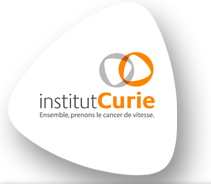Efficacy of chemotherapy according to BRCA status in patients with high-grade serous ovarian carcinoma at first platinum-sensitive relapse
Résumé
Objective Chemotherapy for high-grade serous ovarian cancers in platinum-sensitive relapse includes carboplatin/paclitaxel, carboplatin/gemcitabine, and carboplatin/pegylated liposomal doxorubicin. According to in vitro data, BRCA mutated patients are sensitive to replicative stress agents but BRCA status is not yet used for the choice of chemotherapy at relapse. Our aim was to assess these doublets according to BRCA status in first platinum-sensitive relapse. Methods The ESME ovarian cancer database comprises a multicenter retrospective cohort of patients with ovarian cancer treated in French cancer centers between January 2011 and December 2017. Patients with high-grade serous ovarian cancers at first platinum-sensitive relapse who received one of these doublets were included. The objective was to compare progression-free survival of each chemotherapy doublet according to BRCA status. Results Among the 10 263 patients in the database, 1539 patients had a first platinum-sensitive relapse: 825 BRCA wild type patients (53.6%) and 304 BRCA mutated patients (19.8%) (7 patients had a homologous recombination mutation and BRCA status was unkown for 403 patients). Median progression-free survival was longer in BRCA mutated patients than in BRCA wild type patients when receiving carboplatin/pegylated liposomal doxorubicin without maintenance treatment (15.8 vs 11.8 months; p<0.001). In contrast, we observed no difference in patients treated with carboplatin/paclitaxel (14.6 vs 14.3 months, respectively; p=0.70) or in those treated with carboplatin/gemcitabine (12.0 vs 9.8 months, respectively; p=0.18). In BRCA wild type patients without maintenance, better progression-free survival occurred with carboplatin/paclitaxel (median progression-free survival 14.3 months) than with carboplatin/gemcitabine and carboplatin/pegylated liposomal doxorubicin (9.8 and 11.8 months, respectively; p=0.017). In BRCA mutated patients without maintenance, there was no difference between the three doublets (median progression-free survival of 14.6, 12.0, and 15.8 months with carboplatin/paclitaxel, carboplatin/gemcitabine, and carboplatin/pegylated liposomal doxorubicin, respectively; p=0.40). Conclusion While treatment with carboplatin/paclitaxel, carboplatin/gemcitabine, and carboplatin/pegylated liposomal doxorubicin shows comparable efficacy in BRCA mutated patients, treatment with carboplatin/paclitaxel appears to be more effective than carboplatin/gemcitabine and carboplatin/pegylated liposomal doxorubicin in BRCA wild type patients with high-grade serous ovarian cancers at first platinum-sensitive relapse.
Domaines
Cancer| Origine | Fichiers produits par l'(les) auteur(s) |
|---|
